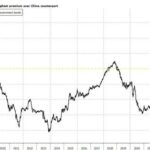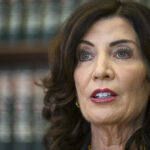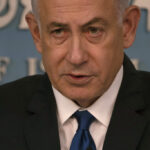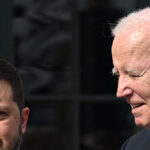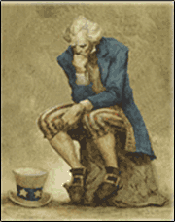
–>
January 8, 2023
Last week, Pope Benedict XVI was laid to rest. The world media were forced to cover the event, barely containing the vitriol they always had for the man.
‘); googletag.cmd.push(function () { googletag.display(‘div-gpt-ad-1609268089992-0’); }); }
Why was such a kindly and humble scholar always the subject of such scorn? Most of it, I think, was that worldly commentators so hated his predecessor, but St. John Paul II’s charisma simply washed over everyone, like a tidal wave. So they took it out on his successor.
There is also a lot of academic jealousy by insiders. The Church has many saints, but only 37 are named Doctor of the Church, and none was born in the last two centuries. Benedict will likely receive this greatest honor, though not for decades, the process understandably taking a long time.
The attacks on Benedict by the secular press began long before his papacy but boiled over with the 2006 Regensburg lecture, where he delved into some of the ideas behind Islam and whether, for example, Sura 2.256 was abrogated, paving the way for conversion by the sword. The Islamic world, egged on by the secular media, was outraged, proclaiming itself a religion of peace and reason. Muslims then killed many Middle Eastern Christians to prove their point.
‘); googletag.cmd.push(function () { googletag.display(‘div-gpt-ad-1609270365559-0’); }); }
After that, Benedict understood that being pope was a different sort of job. As cardinals, Ratzinger (Benedict) and Wojtyla (John Paul II) were the great Catholic theologians of the second half of the 20th century. They derailed the plan to make Vatican II a clean break with the previous 2,000 years and push Catholicism into the irrelevance where most Mainline Protestants now find themselves. They also foiled the nonsense of Liberation Theology.
If you have the time, take a look at Benedict’s thoughts on the continuity of Church teaching in Vatican II. He also explains the importance of the American form of democracy (as opposed to Marxist drivel). It’s almost never talked about today, but Vatican II settled what had been a debate for hundreds of years in the Church on the viability of secular democracies. At the council, Thomism and natural law shone through in the historic article Dignitatis Humanae.
As the trusted partner in the Vatican of John Paul II, Benedict won some hard battles of recent times. The problems of sex abuse and cover-up were brewing for decades in many churches and many institutions; just ask the Boy Scouts.
But as a cardinal and then pope, Benedict made great progress in ending this scourge. In America, for example, there are few modern examples of priest abuse. They date to decades previous, before lawsuits forced the bishops here to finally adopt a get-tough policy, which Benedict encouraged. The only complaint against him on this count dates to a trivial matter, about a meeting in 1980, where he was told next to nothing about a priest who was undergoing unstated treatment.
If anything, the remaining problems on sex abuse in the Church revolve around the top, with very political bishops who are smart enough not to be easily caught, like the disgraced Theodore McCarrick, ally of Pelosi and Biden and a key figure in the election of Pope Francis.
When Pope Benedict stepped down, the fear was that Francis would adopt every terrible idea of the last 50 years as Church policy, from redefining marriage to unrestricted abortion. Instead, he has been unable or unwilling to change much. I suspect that the unrelenting suppression of the Latin Mass is a product of frustration over his general impotence. So we get a steady diet of virtue-signaling, which is good enough for Francis’s many fans in the secular media but will be forgotten after his papacy.
‘); googletag.cmd.push(function () { googletag.display(‘div-gpt-ad-1609268078422-0’); }); } if (publir_show_ads) { document.write(“
In reality, most of the Catholic Church’s problems come today from its poor leadership. Shannon Bream recently asked New York’s Cardinal Dolan about the declining religiosity among the nation’s youth. He could only make an odd reference to the Baptist preacher Billy Graham. Cardinal Dolan, ever the slick operator, didn’t want to address his own failings or those of his fellow Catholic bishops — their near abandonment of what St. John Paul II called the New Evangelization. The great renewal of carrying out the Gospel message to the world is supposed to be the Catholic Church’s number-one mission. But it gets lost in the rush to collect all that government money facilitating illegal immigration, along with the other NGO actors.
Fox was one of the few news outlets even to put clerics on the air. Given the big problems in the Catholic Church and Christianity in general, you would think they would find a little more interest.
Yet the important work of the Church goes on. A recent poll of Catholic priests had a lot of good news. Most parishes are doing well, and most priests, especially the young generation, are tradition-minded conservatives.
This was spun in the media as somehow bad news, that today’s American priests are out of tune with their parishioners and Pope Francis. Well, thankfully, they certainly are uninterested in the utter mess that is Francis’s papacy: a ruin of Peronist politics, Latin American Liberation Theology and Lavender Mafia scandals.
Catholics who actually go to Mass every week are also quite happy with the mostly orthodox priests we have to lead us. Fr. Dwight Longenecker explained many years ago why what is called “liberal Catholicism” is fading away. There’s just nothing about Catholicism, or really any conventional Christian movement, to attract today’s highly secular and selfish left-liberal people. Certainly not enough to inspire the sacrifices needed to be a faithful priest.
The last holdouts will primarily be among the ranks of the bishops, where there is no vow of poverty and essentially no oversight. Eventually, though, even Pope Francis and the current crop of bad bishops will retire.
They will leave a lot of wreckage in their wake. I have written before about the case of Fr. Gordon MacRae, a priest wrongfully imprisoned for decades, in great part because of the misconduct and cover-up activities of his superiors in the Manchester, New Hampshire diocese. New developments in his case this year hold out the hope he may yet be freed. We can only pray it happens soon.
When you see stories about strongmen in places like Nicaragua, persecuting the Church, arresting priests, and ending religious activity, it’s a sad reflection that much of this could have been stopped, but the current pope and his people lack the courage needed to oppose the dictatorial left.
This is in contrast to the defiance in the face of evil that Bishop Alvarez and other Nicaraguans have resolutely shown. Too bad more of our American bishops can’t summon even a fraction of that courage. But for real men of God in this fallen world, there is often a high price to pay — from the unrelenting hostility of the world’s media that Pope Benedict endured to the wrongful imprisonment faithful priests must suffer, even in our own nation.
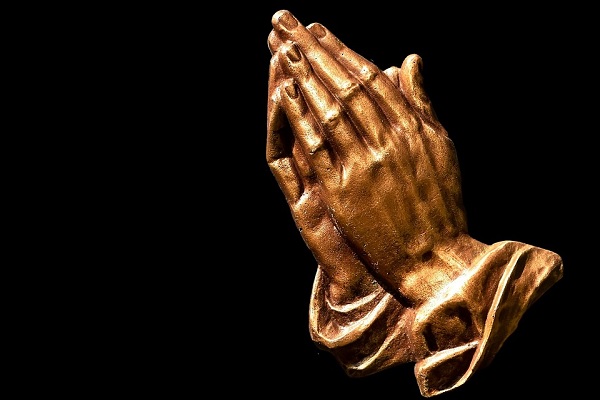
Image: Alexas_Fotos via Pixabay, Pixabay License.
<!– if(page_width_onload <= 479) { document.write("
“); googletag.cmd.push(function() { googletag.display(‘div-gpt-ad-1345489840937-4’); }); } –> If you experience technical problems, please write to [email protected]
FOLLOW US ON
<!–
–>
<!– _qoptions={ qacct:”p-9bKF-NgTuSFM6″ }; ![]() –> <!—-> <!– var addthis_share = { email_template: “new_template” } –>
–> <!—-> <!– var addthis_share = { email_template: “new_template” } –>

